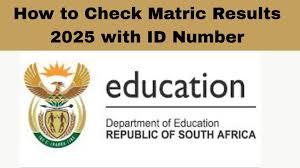As part of the Grade 12 Geography curriculum, students are required to conduct a research task utilizing a hypothesis testing approach. This task aims to explore geographical problems in your local area, fostering critical thinking and analytical skills. Below are key notes and guidelines to assist you throughout the process.
Research Task Overview
- Identify a Geographical Problem:
- Begin by observing your local environment for issues related to geography. This could include:
- Air quality concerns
- Water scarcity or management issues
- Illegal dumping
- The impact of informal settlements
- Utilize various sources of information, including news articles, social media, community reports, and personal observations.
- Begin by observing your local environment for issues related to geography. This could include:
- Formulate a Hypothesis:
- Based on your observations, create a hypothesis that reflects the geographical problem you’ve identified. For example:
- “Illegal dumping in Benoni is contributing to poor air quality.”
- “High water consumption in Tshwane is leading to water shortages.”
- Based on your observations, create a hypothesis that reflects the geographical problem you’ve identified. For example:
- Data Collection:
- Collect relevant data to support or refute your hypothesis. Methods for data gathering may include:
- Direct observations
- Analyzing statistics from reliable sources (e.g., municipal reports, environmental studies)
- Reviewing news articles (for instance, reports on air quality from local newspapers)
- Utilizing social media platforms (like TikTok or Instagram) to gather current community sentiments and reports.
- Incorporating AI tools to analyze data, if available.
- Collect relevant data to support or refute your hypothesis. Methods for data gathering may include:
- Data Analysis:
- Use appropriate statistical methods to analyze the data you’ve collected. Determine if there are correlations to support your hypothesis. For example:
- Compare air quality measurements from areas with illegal dumping versus those without.
- Analyze trends in water consumption levels and their effects on local water reservoirs.
- Use appropriate statistical methods to analyze the data you’ve collected. Determine if there are correlations to support your hypothesis. For example:
- Conclusion:
- Draw conclusions based on your data analysis. Decide whether your hypothesis is supported or refuted:
- If your findings demonstrate a clear link, your hypothesis gains support.
- If the data does not substantiate your hypothesis, consider adjusting your hypothesis based on the results.
- Draw conclusions based on your data analysis. Decide whether your hypothesis is supported or refuted:
Example Research Task
Let’s illustrate the process with an example focused on water consumption in Tshwane:
Identify the Problem: Tshwane is facing a water crisis, urging residents to reduce high levels of consumption due to low reservoir levels.
Hypothesis: “High water consumption in Tshwane is leading to water shortages.”
Data Collection:
- Water Consumption Rates: Gather historical data on water consumption rates in Tshwane.
- Water Levels: Collect information regarding the current levels in local reservoirs.
- Media Analysis: Search for articles or posts that discuss water shortages and community responses.
Analyze the Data:
- Compare consumption rates over time against reservoir levels to assess correlations.
Conclusion:
- Based on your analysis, determine if the data supports or refutes the hypothesis. If high consumption correlates with falling water levels, your hypothesis will be supported.
Final Notes
This research task is not simply an academic requirement; it is an opportunity to engage critically with real-world geographical issues in your community. By integrating local observations, current news, and analytical methods, you can produce insightful conclusions that reflect your understanding of geography.
By working methodically through these steps, you will develop skills that are invaluable not only for your academic journey but also for your future studies and professional endeavors. Good luck with your research, and remember to stay curious and engaged with your environment!





